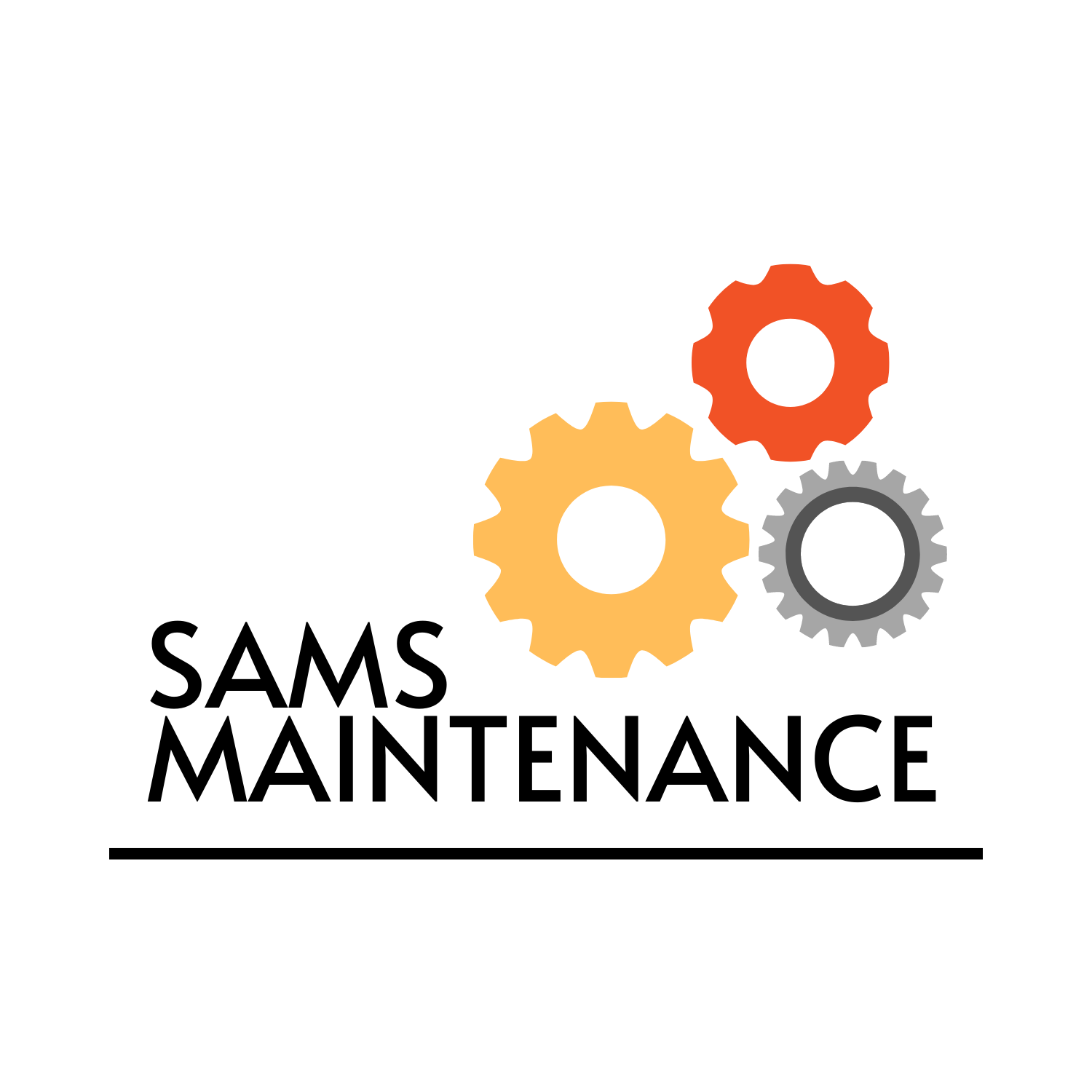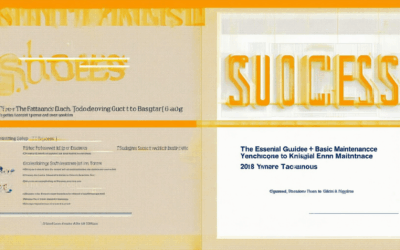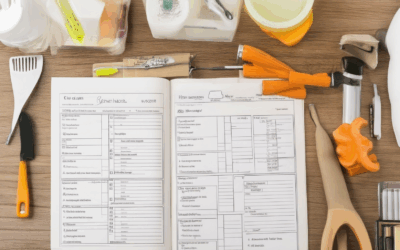In today’s fast-paced world, being prepared for unexpected home issues is crucial. Whether it’s a leaky faucet, a broken appliance, or a structural concern, having the knowledge and confidence to address these situations is key to maintaining your home’s integrity. Mastering home repair skills can empower you to handle a variety of tasks, from minor fixes to more complex projects. These skills not only save time and money but also reduce stress when unexpected problems arise. By equipping yourself with essential home repair skills, you’ll be better prepared to tackle whatever comes your way, ensuring your home remains in top shape. This guide will explore the ins and outs of home repair, offering valuable insights, practical tips, and resources to help you get started. From understanding the basics to learning how to maintain your property, we’ve got you covered. Let’s dive in and discover how you can master home repair skills to keep your home in peak condition.
Key Takeaways
– Prevent Costly Repairs: Regularly inspect and maintain systems like HVAC, plumbing, and electrical components to avoid costly breakdowns.
– Extend Asset Lifespan: Consistent cleaning, replacement of filters, and timely repairs ensure your home’s systems and appliances last longer.
– Save Money Over Time: Preventative maintenance reduces the need for expensive fixes, saving you money in the long run.
– Enhanced Safety: Regular checks of smoke detectors, carbon monoxide alarms, and structural integrity keep your home safe.
– Boost Functionality: Efficient systems and well-maintained appliances ensure your home operates smoothly and comfortably.
– Create a Maintenance Schedule: Tailor a plan to address seasonal tasks, appliance care, and structural checks.
– Learn DIY Skills: Master minor repairs like fixing leaks to handle common issues yourself.
– Hire Professionals When Needed: For complex tasks, rely on trusted local services to ensure quality workmanship.

How to Learn Home Repair Skills
To master home repair skills, start by understanding the basics and gradually building your expertise. Here’s a step-by-step guide:
- Fundamental Skills Every Homeowner Should Know
- Safety Protocols: Prioritize safety by wearing protective gear and turning off power sources before working on electrical systems.
- Basic Plumbing: Learn to fix leaks and understand pipe systems. Common tools include wrenches and pipe sealants.
- Electrical Systems: Familiarize yourself with circuits, switches, and wiring. Use voltage meters and circuit breakers cautiously.
- HVAC Maintenance: Know how to replace filters and troubleshoot heating and cooling units. Learn more .
- Minor Carpentry: Master simple fixes like patching walls and installing shelves. Use sanders and drills carefully.
- Landscaping: Understand lawn care, pruning, and sprinkler systems. Tools like trimmers and leaf blowers are essential.
- Tips for Effective Learning
- Start Small: Begin with easy projects like fixing a leaky faucet or changing a light bulb.
- Watch Tutorials: Utilize online platforms and instructional videos to gain practical knowledge. Explore our video library .
- Practice Safely: Work in a well-ventilated area and avoid risky tasks unless confident in your abilities.
- Seek Professional Help: Don’t hesitate to hire experts for complex issues. Check our service options .
- Keep Records: Document everything you work on for future reference and troubleshooting.
- Resources to Enhance Your Skills
- Recommended Tools: Invest in high-quality tools and equipment tailored to your projects. Shop our tool collection .
- Online Communities: Join forums and groups to share experiences and ask questions. Visit our community .
- Local Classes: Enroll in workshops or courses offered by local hardware stores or vocational schools.
- Books and Guides: Refer to trusted manuals and guides for in-depth knowledge. Browse our library .
- Stay Patient and Consistent
Learning home repair skills takes time and practice. Celebrate small victories and stay committed to improving your abilities.
By following these steps, you’ll gain confidence and proficiency in home repairs. Happy fixing!
The Best Skill for a Handyman
A handyman’s primary skill lies in their ability to diagnose and resolve a variety of issues efficiently. While technical expertise is crucial, the ability to think critically and solve problems on the fly is often the distinguishing factor between a good handyman and an exceptional one.
1. Problem-Solving and Troubleshooting
Handymen encounter countless unique situations, from fixing a leaky faucet to repairing a broken appliance. The best handymen possess the analytical skills needed to identify the root cause of a problem and apply the correct solution. This skill ensures that they can adapt to unforeseen challenges and complete projects effectively.
2. Technical Knowledge
Proficiency in handling tools, understanding electrical systems, plumbing, and basic carpentry are foundational skills for a handyman. Without a solid grasp of these technical areas, they cannot perform routine maintenance or repairs confidently.
3. Time Management
Handymen often juggle multiple tasks simultaneously. Effective time management allows them to prioritize jobs, meet deadlines, and deliver high-quality work without rushing or cutting corners.
4. Safety Awareness
Working with tools and machinery requires a high level of safety awareness. A skilled handyman understands proper safety protocols, ensuring they can handle potential hazards and protect themselves and others on the job.
5. Practical Experience
While formal training isn’t always required, hands-on experience is invaluable. A experienced handyman knows how to measure, cut, and assemble materials correctly, ensuring precise results every time.
6. Communication Skills
Clear communication with clients is essential for understanding their needs and expectations. A handyman who can articulate solutions and timelines effectively builds trust and ensures satisfaction.
7. Attention to Detail
Small details can make a big difference. A meticulous approach ensures that repairs are completed to the highest standards, preventing future issues and leaving customers satisfied.
8. Adaptability
Handymen must be adaptable to changing circumstances. Whether a project takes an unexpected turn or requires additional steps, they remain composed and resourceful.
9. Staying Updated
Continuous learning is key in this field. Handymen who stay informed about new techniques, tools, and industry trends remain competitive and provide the best service to their clients.
Ultimately, the best skill for a handyman is their ability to combine technical expertise with creative problem-solving. This blend enables them to tackle diverse challenges and deliver reliable, high-quality results.

Most Common Home Repairs
Home repairs are a common part of homeownership, and knowing the most frequent issues can help you prepare and address them promptly. Here are some of the most common home repairs and how to handle them effectively:
- Plumbing Issues : Leaky pipes, clogged drains, and malfunctioning water heaters are among the most common problems. Regular inspections can prevent costly repairs.
- Electrical Problems : Faulty circuit breakers, dead outlets, and flickering lights are common electrical issues. Hiring a licensed electrician is recommended for safety.
- Heating, Ventilation, and Air Conditioning (HVAC) : Heating and cooling systems often require maintenance to ensure efficiency. Annual tune-ups can extend the life of your system.
- Appliance Repairs : Refrigerators, dishwashers, and stoves often encounter issues like broken parts or faulty wiring. Refer to the manufacturer’s manual for troubleshooting steps.
By addressing these common repairs promptly and maintaining regular preventive care, you can save money and keep your home in great shape. For professional assistance, contact Sams Maintenance for reliable solutions tailored to your needs.

What Are the Duties of Home Maintenance?
Home maintenance is essential to ensure the longevity and functionality of your living space. Here’s a breakdown of the primary responsibilities:
- Check and Maintain Systems – Regularly inspect and service your home’s major systems, including HVAC, plumbing, electrical, and appliances. This includes checking water heaters, refrigerators, and circuit breakers.
- Clean and Organize – Keep common areas, bathrooms, kitchens, and storage spaces clean and organized. Regularly sanitize surfaces and declutter to prevent clutter buildup.
- Inspect for Issues – Conduct thorough inspections for signs of damage, wear, or pests. Look for cracks in walls, ceilings, or floors, and check for signs of pests like termites or rodents.
- Perform Seasonal Maintenance – Depending on the season, address tasks like gutter cleaning, window washing, and landscaping. Ensure your garden and outdoor spaces are well-maintained.
- Preventative Maintenance – Replace filters, belts, and worn parts in appliances and machinery. Test smoke detectors, carbon monoxide detectors, and security systems to ensure they’re functioning properly.
- Safety Checks – Inspect fire extinguishers, emergency exits, and locks to ensure your home is secure and safe for occupancy.
- Handle Major Repairs – Address significant issues like plumbing leaks, roof repairs, or appliance malfunctions promptly to prevent further damage. Contact professional services when necessary.
- Regular Inspections – Schedule regular inspections for structural integrity, wiring, and plumbing to catch potential problems early. Update and repair as needed to keep your home in great shape.
- Update and Renovate – Stay ahead of home improvements by updating outdated fixtures, repainting rooms, and refreshing your decor. This helps maintain a fresh and functional living environment.
For comprehensive guidance, explore our maintenance plans and educational resources . Proper home maintenance ensures your property remains safe, comfortable, and valuable for years to come.
What is Home Repair and Maintenance?
Home repair and maintenance encompass the routine inspection, adjustment, cleaning, and replacement of systems and components within a residential property to ensure proper functionality and prevent costly emergencies. Regular maintenance helps extend the lifespan of appliances and infrastructure, saving money and effort in the long run.
Types of Home Repair and Maintenance Services
- Repairs: Addressing issues such as leaky faucets, broken pipes, electrical malfunctions, and appliance breakdowns.
- Periodic Checks: Inspecting systems like HVAC, plumbing, and roofing to ensure they operate efficiently and safely.
- Cleaning: Regularly maintaining gutters, chimneys, and vents to prevent blockages and ensure proper airflow.
- Replacement: Replacing worn-out parts like HVAC filters, water heaters, and roofing materials to maintain safety and efficiency.
The Importance of Regular Maintenance
Regular home maintenance prevents small issues from escalating into major problems. For example, annual HVAC tune-ups can prevent costly breakdowns, while gutter cleaning can prevent water damage to your home’s foundation.
How Often Should Home Repairs and Maintenance Occur?
- Seasonal Tasks: Check for issues like roof leaks in spring, HVAC problems in summer, and plumbing issues in winter.
- Appliance Care: Clean and service appliances like refrigerators, dishwashers, and ovens quarterly.
- Electrical Systems: Inspect circuits and wiring annually to ensure safety.
Tips for Effective Home Repair and Maintenance
- Create a maintenance schedule tailored to your home’s unique needs.
- Learn basic DIY skills to handle minor repairs yourself, such as fixing a leaky faucet or changing a light bulb.
- Hire professionals for complex tasks like HVAC installation or plumbing repairs to ensure quality workmanship.
- Contact trusted local services for specialized care, like plumbing or HVAC maintenance.
By prioritizing home repair and maintenance, homeowners can enjoy a safer, more comfortable living environment and save significantly on unexpected repair costs.

What Are Some Maintenance Duties?
Maintenance duties encompass a variety of tasks aimed at preserving the condition and functionality of structures, equipment, and systems. Here are some common maintenance responsibilities:
- Building Maintenance
- Inspect and repair roofs, windows, and walls.
- Paint surfaces as needed.
- Clean and maintain gutters and downspouts.
- Fix structural issues like cracks or peeling siding.
- Mechanical and Machinery Maintenance
- Perform routine inspections on machinery and equipment.
- Oil, grease, and filter components as required.
- Repair or replace worn-out parts.
- Ensure proper operation and safety standards.
- Plumbing Maintenance
- Inspect pipes and fixtures for leaks or damage.
- Fix or replace broken pipes, faucets, and valves.
- Clean and maintain water drainage systems.
- Test water pressure and quality.
- Electrical Maintenance
- Check circuit breakers and electrical panels.
- Inspect wires, sockets, and switches for damage or wear.
- Fix or install new lighting fixtures.
- Ensure proper grounding and safety measures.
- Heating, Ventilation, and Air Conditioning (HVAC) Maintenance
- Servicing HVAC units to ensure optimal performance.
- Replace filters and inspect ductwork for blockages.
- Check and repair gas lines or vents.
- Ensure energy efficiency and safety.
- Landscaping and Exterior Maintenance
- Mow, edge, and fertilize lawns.
- Prune trees and shrubs.
- clean walkways and driveways.
- Inspect and repair outdoor structures like decks and fences.
- Personal Maintenance
- Change air filters in HVAC systems.
- Check smoke detectors and carbon monoxide alarms.
- Inspect fire extinguishers and ensure they are functional.
- Regularly test emergency lights and exit signs.
Conclusion: Regular maintenance is essential for ensuring the longevity and functionality of your property, systems, and belongings. By addressing issues promptly and performing routine checks, you can prevent costly repairs and extend the life of your assets. Prioritizing maintenance tasks based on usage and risk level helps maintain a safe and efficient living or working environment.




0 Comments